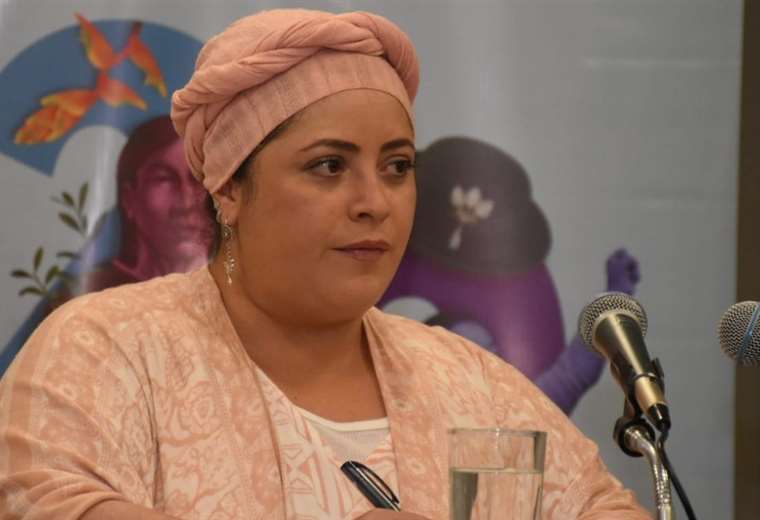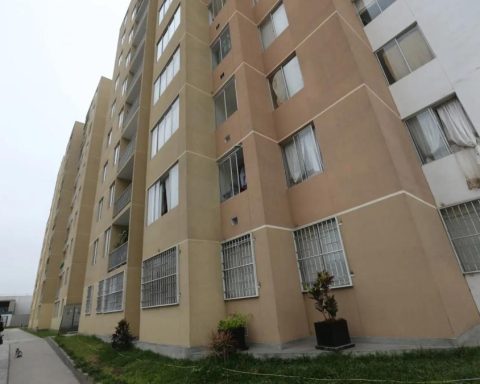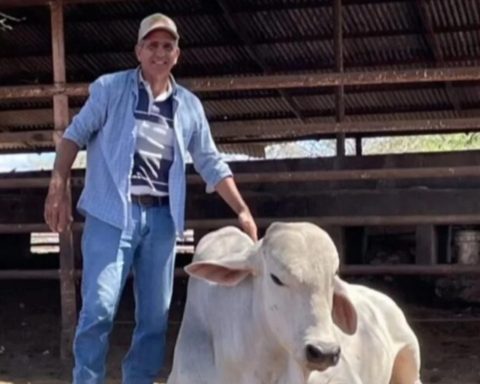The governors of Santiago del Estero, Gerardo Zamora, and from Chaco, Jorge Capitanichexposed the asymmetries that remain between the northern provinces and the Buenos Aires Metropolitan Area and explained the work plan they are carrying out to boost their economies and development possibilities.
The leaders did so by participating in the inauguration of the “National Day”, an activity of the Economic Commission for Latin America and the Caribbean (ECLAC)organization that from Monday will have the 39th period of sessions in Buenos Aires.
The meeting, at the Palacio San Martín, was also attended by the governor of Entre Ríos, Gustavo Bordet; Foreign Minister Santiago Cafiero and the Executive Secretary of ECLAC, José Manuel Salazar-Xirinachs, together with the Minister of the Interior, Eduardo de Pedro and deputy governors of several provinces.
The leaders shared a panel on “The challenges of territorial justice” where they spoke about the asymmetries that the country maintains with the provinces of Northern Argentina and the need to plan the potential that the region has for a world that needs food security, renewable energies , strategic minerals and care for the environment.
“This is the necessary moment to define a territorial justice, key for our country to achieve a fairer and more equal development,” said Zamora.
“Today, the metropolitan area of Buenos Aires receives 74 percent of the subsidies, which means that an Argentine who lives in another city pays more for water, electricity, transportation, fuel and other services, because here concentrates a large part of public investment”, he highlighted.
However, he added, from federalism the provincial governments have “the responsibility to provide education, justice, housing, health and all the rights, which must be guaranteed equally to the citizens of all territories.”
Capitanich agreed with Zamora when pointing out that at the beginning of history, a highly concentrated agro-export model was configured with structural asymmetries, which to this day continues to generate consequences.
Likewise, he proposed how to correct the current asymmetries with the creation of several corridors, such as the Bioceanic, the Patagonian and the Paraná-Paraguay waterway.
“We must unite the Atlantic with the Pacific and correct poverty through the right to citizenship from identity to sports, education, housing, and all the rights that make the integrity of the person,” said the Chaco governor. .
Cafiero stressed that Latin America “is not resigned to inequalities”
Foreign Minister Santiago Cafiero advocated “reducing development gaps” in Latin America, and stressed that the region “is not resigned to inequalities and poverty” and that it “can and should provide its own solutions.”
Cafiero spoke this morning at the inauguration of the “National Day”, within the framework of the Assembly of the Economic Commission for Latin America and the Caribbean (ECLAC), on the day prior to the formal opening that will take place on Monday, October 24, and in which Argentina will assume the Pro Tempore Presidency of ECLAC and will be the host country after 59 years.
Along with ECLAC’s executive secretary, José Manuel Salazar-Xirinachs, the Minister of Foreign Affairs participated in the meeting, which was also attended by the governors of Chaco, Jorge Capitanich; from Entre Ríos, Gustavo Bordet; and from Santiago del Estero, Gerardo Zamora; the deputy governors of the Province of Buenos Aires, Verónica Magario; from Santa Fe, Alejandra Rodenas; the deputy governor of Catamarca, Rubén Dusso; the Minister of the Interior of the Nation, Eduardo de Pedro, and the national deputy for Río Negro, Graciela Landriscini.
In his speech, Cafiero stated: “We want to work with ECLAC on a necessary agenda, which today involves reducing development gaps, identifying new secure supply chains and identifying regional development, so that employment and production are not a variant adjustment or occasional but something sustained over time”.
“We are a continent that thinks, courageously, resiliently, that is not resigned to inequalities and poverty, and that can and must provide its own solutions,” he stressed.
In turn, he indicated that there are two years ahead “to work together with ECLAC and link all its technical work to think about how we resolve the gaps in our country,” referring to the differences “in development, territorial, gender , and those linked to educational and scientific-technological accessibility”.
The head of Palacio San Martín highlighted the role of the country as a supplier of raw materials, but urged “to see how we can add greater added value to our production and our exports, since in this way we will be generating what we most need: genuine poverty reduction jobs, distributed federally.
For his part, Salazar considered that “Argentine society – through its political and institutional system – has not remained indifferent to territorial inequality,” and praised the “set of devices that help mitigate the effects of that inequality, from tax policy and the social protection system, to the policy of public investment in infrastructure”.
The Minister of the Interior, Eduardo De Pedro, highlighted that “genuine employment that dignifies, that orders the family, society, can be generated if there are conditions in the different regions of a country that allow there to be investments, companies, businesses , industries”.
The ECLAC Office in Argentina will present three documents at the Assembly on “The challenges of territorial justice, the Knowledge Society, territory and development, and Closing gender gaps from a territorial perspective.”


















